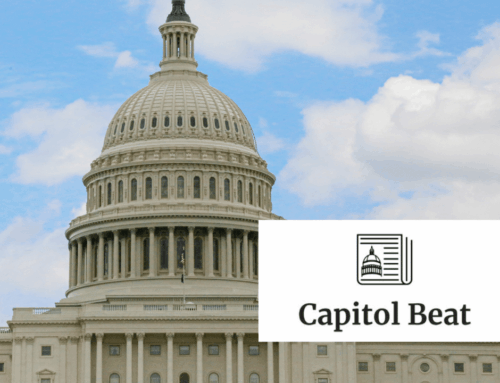The voters have spoken and the 116th Congress has been elected to govern with a Democratic majority in the House of Representatives and an expanded Senate Republican majority. But what does that all mean?
Well, first, the 115th Congress isn’t over. The scores of lawmakers not returning still have work to do before they leave Capitol Hill. The National Flood Insurance Program expires at the end of the month. A week later the continuing resolution that funds much of government expires. The farm bill expired at the end of September and needs some certainty before the new year.
What Lame Duck?
So-called lame duck sessions – the period after a new Congress is elected but before it takes the reins – are typically not too productive, particularly when control is set to change hands in the new Congress. So it is likely that flood insurance and the farm bill will get extensions instead of full authorization. Appropriations is trickier. Lawmakers managed to complete five of the twelve spending bills before heading to their districts prior to the election, but a lot is still on the table. Congress could punt and pass another short term continuing resolution, or they could pass a series of “minibus” bills that roll several of the outstanding appropriations bills together. They may also provide additional disaster funding to deal with Hurricane Michael.
No matter the strategy, there is a lot on the line for outgoing House Republicans. Notably, the Department of Homeland Security does not yet have a full year of funding – and the spending bill contains cash for the border wall. With all parties knowing where they will stand in the next Congress it’s not clear where that deal will be had and how much taxpayer cash will be wasted on the wall.
There are also things that shouldn’t be done in the lame duck. For example, tax extenders, the rump package of narrow special-interest tax provisions that get one or two year temporary extensions, and are the opposite of sound tax policy. Tax extenders expired at the end of 2017. They should stay that way.
116th Congress’ Homework
Moving on to the 116th Congress.
First off, the parties in both chambers need to pick their leadership. Then the entire House votes on Speaker. Committee assignments are handed out, the majority party gets more seats than the minority (these ratios are agreed to by leadership in both chambers and reflect the relative size of the majority). Then, hopefully, Congress gets down to work.
House Democrats have promised to conduct oversight hearings on the Trump Administration. Done well, this is a good thing. Whoever is in power, Congress has a responsibility to investigate and conduct oversight over the Executive branch. It is a Constitutional responsibility that too often goes by the wayside, particularly if the White House is controlled by the same party in Congressional power. This is a disservice to taxpayers. And of course the country faces a very large fiscal challenge. With economic growth of three percent of GDP, low unemployment, and rising wages the government shouldn’t be running a deficit 3.8 percent of GDP. It’s exactly the wrong policy.
The new Congress needs to start addressing these challenges right away as they’ve got to finish whatever the 115th left unfinished, and then turn to hammering out a budget for Fiscal Year 2020. Complicating that effort is that after two years of huge spending increases over the caps, the spending limits of the Budget Control Act of 2011 return for fiscal years 2020 and 2021 and they are much lower than the current funding levels. But will Congress push the pain off again or abandon the Budget Control Act altogether?
Congress, Get To Work
Considering how much last year’s tax cut and the spending increases included in last year’s budget deal added to the budget deficit, we certainly hope that whatever path lawmakers take, they make some effort to live within their means. Either through spending offsets or increased revenues, Congress must find a way to bring spending and revenues closer together.
What about new opportunities? Infrastructure? A middle class tax cut?
Well, as we said earlier, the budget deficit is huge and getting bigger. The growing economy has not made up for the revenue shortfall and overspending. If the current economic growth slows, as might be expected after a decade of economic expansion, the growth of the deficit and debt will accelerate. Whatever new initiatives Congress pursues, be it infrastructure or more changes to the tax code, those policies should be prioritized, targeted, and paid for. It’s a lot of heavy lifting.
To those who won their election and will serve in the 116th Congress – congratulations. Now, roll up your sleeves and get to work.










